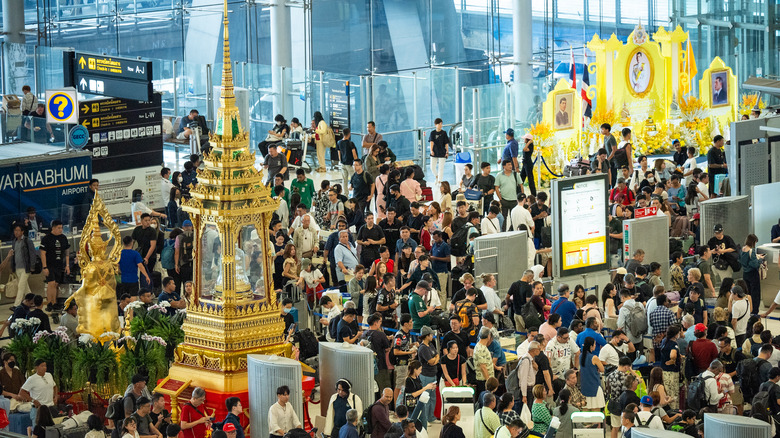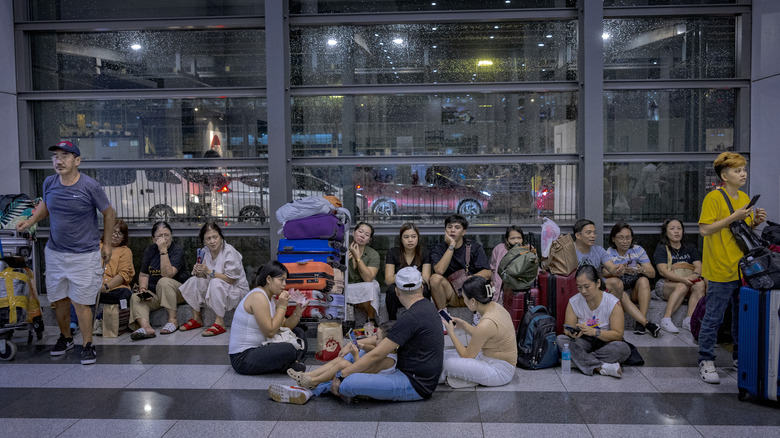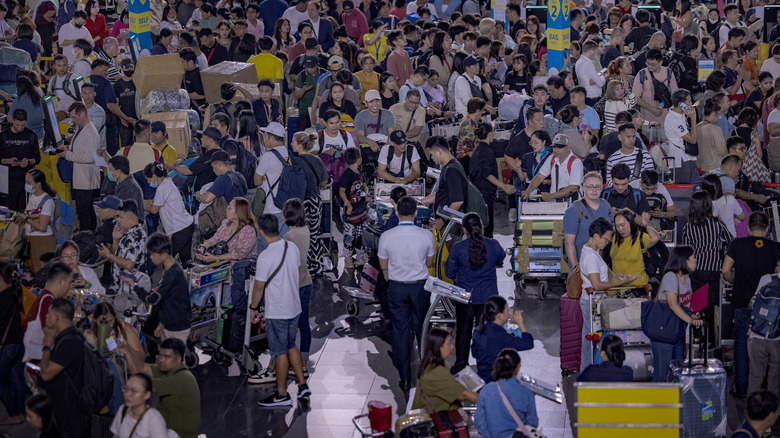Worldwide Flight Cancellations And Delays Caused By Sweeping Tech Disruption
Following a significant IT outage that has had a worldwide impact, the air travel industry has ground to a halt. Around 1,400 flights have been canceled, with several airlines around the world grounding their fleet in the face of unprecedented technological disruption.
The source of the issue is cybersecurity company CrowdStrike. The Austin-based tech giant suffered a defect during a tech update, leading to Windows operating systems worldwide experiencing disruptions and more, including the much-feared "blue screen of death." That was the image faced by travelers at several airports, who were left in the dark as flights were delayed and subsequently canceled. The disruption has also impacted banks, healthcare networks, shops, and more.
Major international airlines worldwide have been impacted, with disgruntled passengers weighing up compensation options from Delta, American, and United in the U.S. to KLM, British Airways, Air France, and others in Europe. Not all airports have been affected — airports in mainland China, for example, utilize a different operating system — the backlog and queues mean delays will almost certainly continue into the weekend.
What is Crowdstrike and what has happened?
Until this morning, travelers could be forgiven for believing these scenes were confined to science fiction. However, the fragility of the travel industry's reliance on technology has become all too real for passengers worldwide, with well over 1,000 flights canceled and many more delayed. If you've not read Rumaan Alam's 2000 novel "Leave the World Behind" (or seen the 2023 Netflix movie adaptation), this might not be the best time.
At the center of the chaos is Crowdstrike, a cybersecurity firm founded in 2011 and based in Austin, Texas. George Kurtz, the president and CEO of Crowdstrike, took to social media to explain the issue. Commenting on X, formerly known as Twitter, Kurtz said that the problem stems from "a defect found in a single content update for Windows hosts." Kurtz went on to state that "This is not a security incident or cyberattack. The issue has been identified, isolated and a fix has been deployed." However, in an interview with NBC News, Kurtz admitted that it could be some time before things run smoothly again.
What happens next?
Of all the industries impacted by the Crowdstrike chaos, the travel industry has been hit the hardest. Airports from Atlanta to Amsterdam and Dallas to Delhi have been affected, with several major U.S. airlines grounding their entire fleets for a period of time. Flights are still taking off, but it is a slow process and significant delays are expected as airports and carriers struggle to work through the mess.
There is never a bad time to remind yourself of your rights in the case of a canceled flight, although remember that you are not alone in this international disruption. Airlines will likely be overwhelmed with compensation requests and angry passengers looking for information and solutions, so be as patient as possible. It will take some time, but the air travel industry is expected to bounce back soon enough.
Unless it doesn't, of course, and this is the beginning of the end. After all, Microsoft has resorted to recommending that customers turn their computers off and on again in the hope that they will work. As frustrating as this is, it doesn't mean the end of holidays; could it be the impetus you need to plan that road trip of a lifetime?


